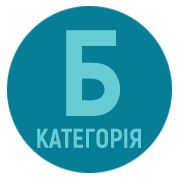PRAGMATICS OF THE INITIATION NOVEL
DOI:
https://doi.org/10.25128/2304-1222.22.53.06Keywords:
modern literature, reader, teenage audience, reception, literary anthropologyAbstract
A type of literature that is intended for teenagers and young adults is the novel of initiation, which is a narrative about maturation, the process of growing up, the loss of innocence and the entry into the stage adulthood. These texts form a separate phenomenon of literature, which acts as a kind of “bridge” from children’s to adult reading and is characterized by a number of psychological characteristics, worldview aspects, a peculiar system of images and motives, themes, aimed at readers of adolescence. Modern literature turns to the ritual, borrowing certain elements of its structure and aesthetically interpreting them in a literary text. Initiation rites are intended to transfer an individual to another social and spiritual status, i.e. socialization, and therefore they are directly related to various rites of passage. Through the prism of cultural experience, an individual searches for his own outlook and value orientations, which will help him understand himself, the world around him, and his place in it. It is the initiation rite that is the tool for a young person helping to become a full-fledged member of society, performs certain roles. “Fusion of horizons” (term of H.R. Jauss) of the reading audience with the artistic content of modern literature implies that during reading the reader’s life situations are identified with the circumstances of the initiation rite of the heroes in initiation novels. This process makes possible a kind of initiation of the recipients of the texts, the result of which is an understanding of the modern social cultural situation, finding answers to questions about the meaning of human existence, gaining experience. In this sense, the reading process has an anthropological meaning, as it satisfies young people’s psychological needs for self-awareness, self-affirmation and self-realization in modern world. This is what defines the pragmatics of initiation novels.
References
Довгань О. Специфіка кризи особистості у юнацькому віці. Психологія і суспільство. 2004. № 2. С. 144–150.
Зубрицька М. Homo legens: читання як соціокультурний феномен. Львів : Літопис, 2004. 352 с.
Ізер В. Процес читання: феноменологічне наближення. Слово. Знак. Дискурс. Антологія світової літературно-критичної думки ХХ ст. Львів : Літопис, 1996. С. 263–276.
Керик О. “Щоразу переживав момент, коли твір писав себе сам”. Високий замок. 2007. № 19 (3426).
Ліщинський Г. Сучасна проза для молоді: пізнавальні й освітні функції. Світ дитячих бібліотек. 2009. № 1. URL: http://www.chl.kiev.ua/default.aspx?id=5020 (дата звернення: 15.01.2023).
Огар Е. Особливості читацької поведінки сучасних підлітків. Вісник Дніпропетровського ун-ту. Соціальні комунікації. Літературознавство. 2008. Вип. 1. С. 109-114.
Огар Е. Українська дитяча книжка: сучасний стан і перспективи. Діалог культур: Україна у світовому контексті: Мистецтво і освіта: зб. наук. праць. Львів : Каменяр, 1998. Вип. 3. С. 308-313.
Папуша О. Наратив дитячої літератури: специфіка художнього дискурсу : дис… канд. філол. наук : 10.01.06. Тернопіль, 2004. 236 с.
Рецензії користувачів на «Культ» Любка Дереша. URL:https://www.yakaboo.ua/ua/kul-t-1566738.html (дата звернення: 15.01.2023).
Славова М. Волшебное зеркало детства. Статьи о детской литературе. Київ , 2002. 94 с.
Славова М. Попелюшка літератури. Теоретичні аспекти літератури для дітей. Київ, 2002. 81 с.
Стрижак А. “28 дівчат і один я…” Україна молода. 2005. № 164. URL: http://www.umoloda.kiev.ua/number/504/164/18209/ (дата звернення: 15.01.2023).
Федорінов Д. Формування Я-концепції в юнацькому віці. Психолог. 2006. № 10 (201). С. 5–8.
Яусс Г. Р. Естетичний досвід і літературна герменевтика. Слово. Знак. Дискурс. Антологія світової літературно-критичної думки ХХ ст. Львів : Літопис, 1996. С. 279-307.
Kasperski E. Dyskurs antropologiczny. O antropologii literatury. Zasady pierwsze. Slupskie Prace Filologiczne: Seria Filologia Polska. 2007. S. 153–170.
Lubimy czytać. Mirosław Nahacz. URL: https://lubimyczytac.pl/ksiazka/4956793/osiem-cztery-bombel-bocian-i-lola (дата звернення: 15.01.2023).
Markowski M. P. Antropologia i literature. Teksty drugie. 2007. № 6 (108). S. 27-42.










